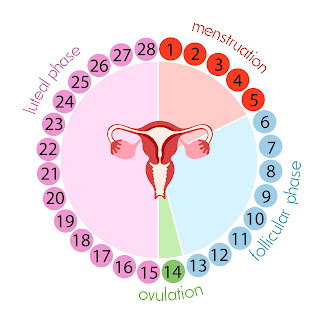For many people trying to conceive, knowing how ovulation and conception work is essential. The process of getting pregnant is intricate and involves a few key stages, each with its own timing and significance. Understanding the relationship between ovulation, conception, and pregnancy can help you optimize your chances of success. Let’s break down the entire process, from ovulation to pregnancy, and discuss the best timings for conception.
What is Ovulation?
Ovulation is the release of an egg from one of the ovaries, typically occurring in the middle of a woman’s menstrual cycle. This is when the body is most fertile. The egg travels through the fallopian tube, where it can be fertilized by sperm. Ovulation usually happens around day 14 of a 28-day cycle, though it can vary for each person.
How Does Ovulation Work?
-
Follicular Phase (Days 1-14): The menstrual cycle begins with the first day of your period. During the follicular phase, the body prepares to release an egg. Follicles in the ovaries begin to mature, and the hormone estrogen increases. This leads to the thickening of the uterine lining in preparation for a potential pregnancy.
-
Ovulation (Day 14): Typically around the middle of your cycle, a surge in luteinizing hormone (LH) causes the mature follicle to release an egg. This is ovulation — the fertile window in the cycle.
-
Luteal Phase (Days 15-28): After ovulation, the ruptured follicle forms a structure called the corpus luteum, which secretes progesterone to help maintain the uterine lining. If the egg is not fertilized by sperm, the corpus luteum breaks down, progesterone levels drop, and the lining sheds, leading to menstruation.
What is Conception?
Conception occurs when a sperm cell successfully fertilizes an egg. The fertilized egg then travels down the fallopian tube and implants itself into the uterus. Conception can only happen during the short window of time when the egg is viable, typically 12–24 hours after ovulation. Sperm can live in the female reproductive tract for up to five days, meaning intercourse before ovulation can still result in pregnancy.
When is the Best Time to Get Pregnant?
For conception to occur, it’s crucial to time intercourse with your ovulation. The days leading up to and the day of ovulation are the best time for conception. This period is often called the “fertile window,” and it spans about five days before ovulation and the day of ovulation itself. By tracking ovulation through methods such as basal body temperature (BBT), ovulation predictor kits (OPKs), or cervical mucus monitoring, you can increase your chances of timing intercourse during this optimal period.
The Pregnancy Process
Once sperm fertilizes the egg, the fertilized egg (now called a zygote) begins its journey to the uterus. It typically takes about 6-12 days for the zygote to implant itself into the uterine lining. If implantation is successful, pregnancy hormones like human chorionic gonadotropin (hCG) begin to rise, and a missed period becomes one of the first signs of pregnancy.
Top FAQs About Ovulation, Conception, and Pregnancy
1. How do I know if I’m ovulating? You can track ovulation using several methods: basal body temperature (BBT) charting, ovulation predictor kits (OPKs), changes in cervical mucus, and monitoring symptoms like mild cramping or increased libido. These methods can help you predict your fertile window and time intercourse accordingly.
2. Can I get pregnant right after my period? It’s unlikely but possible. If you have a short menstrual cycle (e.g., 21-24 days), you may ovulate soon after your period ends, and sperm can survive in your reproductive tract for up to five days. So, if you have intercourse toward the end of your period, sperm may still be viable when you ovulate.
3. What happens if I miss ovulation? Missing ovulation, also known as anovulation, can prevent conception. This could happen due to stress, hormonal imbalances, weight changes, or underlying health conditions. If you miss ovulation consistently, it’s a good idea to consult with a healthcare provider to address any potential fertility concerns.
4. How long does it take to get pregnant? The time it takes to get pregnant varies for each person. On average, it can take 3-6 months of trying if you’re healthy and timing intercourse correctly. However, if you're under 35 and haven't conceived after a year of trying, or over 35 and haven't conceived after 6 months, you may want to seek medical advice.
5. Can you conceive on any day of your cycle? No, conception is only possible during the fertile window, which typically occurs around ovulation. Outside of this period, the egg is no longer viable, and sperm cannot fertilize it.
6. What are the signs of pregnancy after conception? After conception, common early pregnancy signs may include a missed period, nausea or vomiting (morning sickness), frequent urination, breast tenderness, and fatigue. Some women may also notice implantation bleeding, which occurs when the fertilized egg attaches to the uterus.
Conclusion
Understanding ovulation, conception, and pregnancy is crucial for anyone trying to conceive. Timing intercourse with your ovulation cycle increases the chances of conception, and knowing the signs and symptoms of pregnancy can help you confirm whether you’ve successfully conceived. While it can take time, patience, and tracking, the journey to pregnancy is unique for everyone. If you’re having difficulty conceiving or want more personalized advice, consulting a fertility specialist or healthcare provider is always a good step forward.
Stay on Track with Your Fertility Journey
Remember, every individual’s cycle is different, and factors like age, health, and lifestyle can all influence fertility. By learning more about ovulation and how your body works, you’ll be better equipped to make informed decisions and increase your chances of a successful pregnancy.
If you found this article helpful, don’t forget to share it with someone who might benefit! And for more tips on fertility, health, and wellness, be sure to subscribe to Healthy Roots & Habits!


%20Foods%20That%20May%20Ease%20Your%20Pain.jpg)





%20Benefits,%20Uses,%20and%20Everything%20You%20Need%20to%20Know%20-%20Healthy%20Roots%20&%20Habits,%20Healthy%20Roots%20&%20Habits%20Blog.jpg)
%20Benefits,%20Nutrition,%20Side%20Effects,%20and%20How%20to%20Use.jpg)


No comments:
Post a Comment